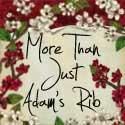 This week has brought summer's bountiful harvest indoors.
This week has brought summer's bountiful harvest indoors."What's that smell," my daughter asked. This child who picks her fruit straight from the garden vine, who prefers her tomatoes be eaten like apples and who turns up her nose at them when sliced for civilized folk...even she was overwhelmed by the sweet, pungent aroma of a kitchen filled with four five-gallon buckets brimming tomatoes so ripe, they burst like water balloons when dropped.
My knife pierced the paper-thin skins, finding little resistance as I sliced through juicy pulp, quartering them for the hand-turned press. Then came several labor-intensive hours, arm muscles aching, sweat dripping, even inside air conditioned house.
 With so much ripe fruit at once, my daddy and I took turns cranking. Our left arms repetitively pressed wooden plunger against the fruit while the other cranked the handle round and round, pulling the quarters through, straining out peelings and seeds while squeezing lycopene-rich pulp and juice down the chute.
With so much ripe fruit at once, my daddy and I took turns cranking. Our left arms repetitively pressed wooden plunger against the fruit while the other cranked the handle round and round, pulling the quarters through, straining out peelings and seeds while squeezing lycopene-rich pulp and juice down the chute. Once poured into jars, lidded, and ringed, we took them outside to arrange double-decker inside the big pot that sees more boiled crawfish than tomatoes. Daddy fired up the propane burner, and we sunk in the shade forty-five minutes until the first batch was done. With his elbow-length "fire" gloves, he used specially-shaped tongs to gently remove them from their hot bath, careful not to tilt them lest they not seal.
Once poured into jars, lidded, and ringed, we took them outside to arrange double-decker inside the big pot that sees more boiled crawfish than tomatoes. Daddy fired up the propane burner, and we sunk in the shade forty-five minutes until the first batch was done. With his elbow-length "fire" gloves, he used specially-shaped tongs to gently remove them from their hot bath, careful not to tilt them lest they not seal.The late-afternoon sun shone golden through the clear Ball Mason jars, red pulp separating from the liquid and hiding out at the top. We started boiling the second batch of 21 quarts while listening for the "pop" from those already finished, an indicator that the jars had sealed in the fruit, sealed out everything else.
Monday evening, I could look back on the fruits of my labors--42 quarts of tomato juice, all after my morning of baking and freezing four and a half dozen bran breakfast muffins.
Tonight, I went out and harvested first crop of basil. My feverish (yes...again) children and I stripped the leaves from their stems, the breaking releasing a spicy aroma that still lingers hours later. Husband washed and spread the leaves out to dry so tomorrow, I can make a dozen or more small jars of pesto to freeze for the upcoming year. When all was finished, we had twelve tightly-packed cups worth--with the severe drought we've had this summer, I was amazed, overjoyed at the abundance.
 Canning tomatoes with local fruit found right on our farm, making my own pesto--this more "organic" closeness with our food is all the rage right now. I read just last week of some city couple converting their front lawn into a raised-garden, square boards surrounding their three beds of vegetables.
Canning tomatoes with local fruit found right on our farm, making my own pesto--this more "organic" closeness with our food is all the rage right now. I read just last week of some city couple converting their front lawn into a raised-garden, square boards surrounding their three beds of vegetables.But around here? This is just ordinary life.
It's the way I remember all the summers of my youth--my daddy in his wide-brimmed straw hat as he worked in the garden full of row after row of snap beans, sweet corn, field peas, dinner plate tomatoes, yellow squash--all constantly needing to be picked, washed, eaten, or brought to my mother to be blanched, frozen, or canned.
Nobody ever wrote a newspaper article about him, computer salesman by day, vegetable gardener on evenings and weekends. Now, as his daughter, nobody will write a newspaper article about me either, college professor by night, farm woman by day.
And that's ok.
Eating what we grow, what we harvest, what we store for those months when the land is barren--it's not a trend. It is life, working with the land, seeing God give the increase, and thanking Him for the harvest, however plentiful it might be.
















